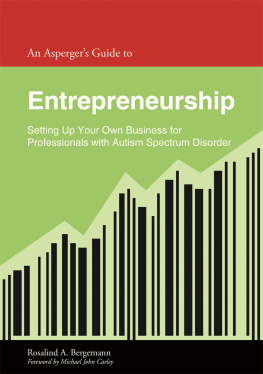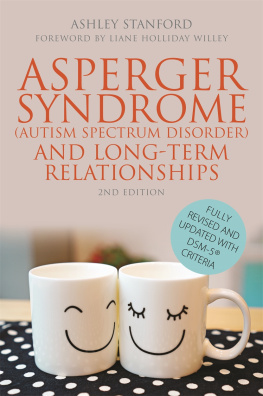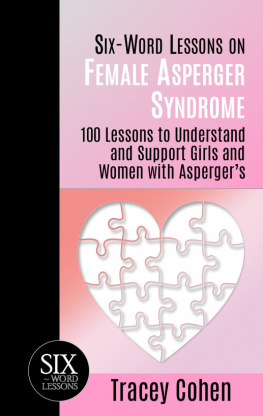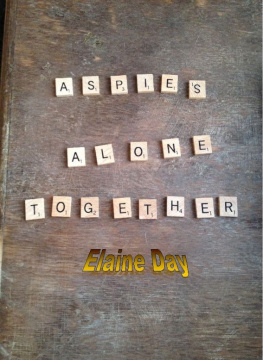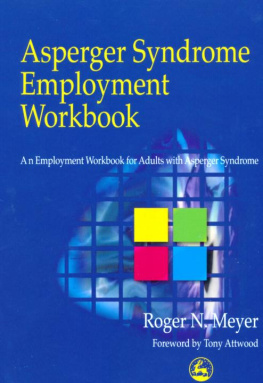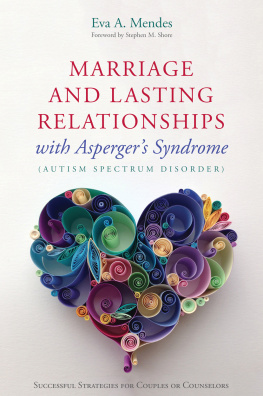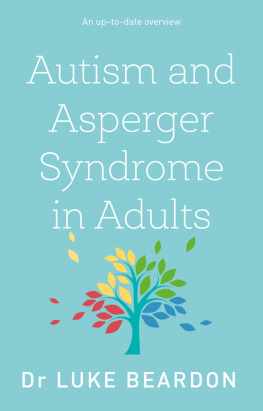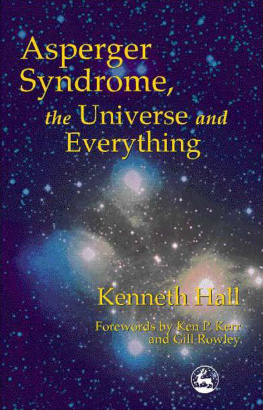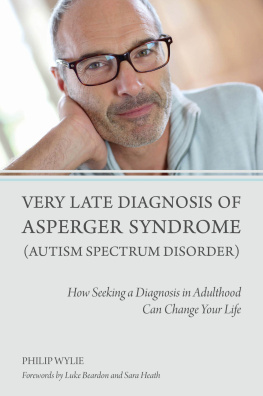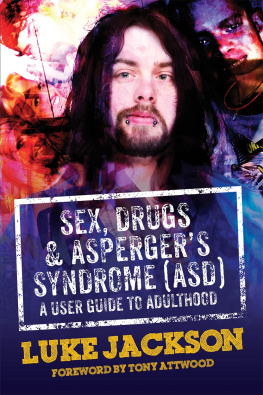Title Page
WHY ARENT NORMAL PEOPLE NORMAL?
A Girls Survival Guide to Growing up with Asperger Syndrome
By
Olley Edwards
Publisher Information
Apex Publishing Ltd
PO Box 7086, Clacton on Sea,
Essex, CO15 5WN, England
www.apexpublishing.co.uk
Digital Edition converted and published by
Andrews UK Limited 2013
www.andrewsuk.com
Copyright 2013 Olley Edwards
The author has asserted his moral rights
All rights reserved. This book is sold subject to the condition, that no part of this book is to be reproduced, in any shape or form. Or by way of trade, stored in a retrieval system or transmitted in any form or by any means, electronic, mechanical, photocopying, recording, be lent, re-sold, hired out or otherwise circulated in any form of binding or cover other than that in which it is published and without a similar condition, including this condition being imposed on the subsequent purchaser, without prior permission of the copyright holder.
Dedication
To my beautiful daughters: Chloe, Honey and Cherish.
You are the reasons I do what I do.
The reason I wake, the reason I rest.
The reason I shall never give up.
The reason I can achieve anything.
You are all of my reasons.
I love you.
To my parents: Cathy and Adrian Jones for believing in me. For unconditionally supporting me, as I raise my daughters as a single mum.
To my true friends, who accept me for who I am, and for who I am not.
To the amazing ASD children I have had the pleasure to meet thank you for being you and for teaching me so much.
To female Autism specialist Tania Marshall for making this lonely journey not so lonely after 31 years.
No more girls left behind
This guide couldnt have been created without the valuable help of the very talented David Asch, I owe you one!
Preface
After a 31-year journey of being an undiagnosed female with Aspergers and 11 years of raising daughters diagnosed on the Autistic spectrum, I felt it important to raise awareness. There is a difference in the manner that Aspergers/High-functioning Autism presents itself in males and females, leaving many females behind without a diagnosis as a result.
I started writing about female Aspergers last year, after my alter ego, Olley Edwards, won a modelling competition in a global magazine. My purpose for doing this was to be in a position to ask to write articles, knowing that they would be seen worldwide. They very kindly allowed that to happen. The response to which was overwhelming. My article was seen as far as Australia, America and Geneva and many parents, doctors and Autism specialists contacted me. As a result my confidence (a rarity for us Asperger girls) grew and I started to put pen to paper.
Over the years, I read anything I could get my hands on, finding that the majority of books were aimed at helping Neurotypicals (polite term for normal) understanding of people with Aspergers. Why? Aspergers is a condition full of ability but it is a disability too. I felt that it was a shame to teach society how to understand us, before we had a means to understand society? If this were fair and common practice, then surely sighted people would be taught braille before the blind.
Communication is always a two-way street, so heres the other way.
Introduction
Why arent normal people normal? is a girls guide to growing up Asperger Syndrome. Its the guide I wish I could place in a time machine and send to my younger self, back when I didnt know I was also growing up Aspergers. Its the book I hope my daughters will use to guide them through the awkwardness of growing up being different. My book is for any girl who feels frustrated and alien socially, who may or may not have had an official diagnosis yet.
Ive no age recommendation for this book. Aspergers girls can be physically one age and mentally another, what may be suitable for one girl may not be suitable for the next girl. This is down to caregivers and parents to make a choice as to what they feel is appropriate. Its a clear, supportive, honest, and, at times, brutally honest guide to steer a smart, intelligent, focused young woman away from vulnerability and obsessions controlling you and to make use of your ability to take control of your own condition, own circumstances, to lead a more confident, happier, successful, healthier lifestyle. Think of it as a GPS system. It can take you wherever you want to go but only you can punch in the postcode.
It should be said that Why arent normal people normal? may not make sense to you if youre normal but who wants to be normal anyway?
Embracing Your Individuality
If youre lucky enough to be born unique, never change that
In a world where most people try and fit in the most beautiful thing a girl can be is different. Take a look around you in schools, colleges, and workplaces. There is a neurotypical (Normal) desire to evolve into the sheep-like quality of sameness. Go online; have a wander around social media, so many people wanting to have the same bag, the same branded clothing, and the same hairstyles? It appears to be that the worst thing you can be is an individual. Wrong! Thats the best thing you can be! Nobody can be you better at being you than you can!
The assumption is the neurotypicals feel safety in numbers, perhaps gaining a sense of security from being accepted by their peers. This is merely a superficial acceptance. Yes, they may be accepted and made to feel part of a particular clique, but the irony is, that, by surrendering their individuality, they are not really accepted for who they are, and who they arent at all.
Whats really happening is a false circle of friends who may only be friends with them whilst they conform to the pack leaders requirements. Take away the items or ethos that you have to maintain to be within that clique and you will, more than likely, find yourself thrown out of it. This is not true friendship; this is being used.
Materialism is not high on an Asperger girls agenda; people-watching has shown me that neurotypicals have a greater need for materialism than us Aspies. Perhaps the material things they desire mask their insecurities and they feel the company they choose is also a refection of that? If you feel you dont fit in anywhere, that is ultimately a good thing, you may not feel super confident but just by being true to yourself youre likely to be way ahead of your peers in achieving it!
I dont want to come across anti-neurotypical or anti-normal! That is definitely not the case here. We all have amazing normal people in our worlds. The parent who has supported you since birth, the doctor who looks after you, the true friend who loves you for all you are and all you are not. There is, however, a difference, and this difference is what makes us feel alienated, so its a healthy subject to discuss.
Its fundamental to highlight the fact that we arent lesser people because of our differences, we are a little bit more noticeable than our peers because of them, and the tricky part is that we may not even be aware of how noticeable that difference is. If you find yourself feeling utterly alien to any given situation you find yourself in, there are ways to manage it. In fact, you probably do it already. Asperger girls are born actresses, not always the jump-on-stage type; sometimes we are the chameleonic, blending-in-to-survive type. Stock parrot-like phrases are stored in our brains, like a high tech filing cabinet of quotes; mostly other peoples words but a great way to communicate and make do in a environment we wouldnt normally place ourselves in.
The best option, of course, is to not place ourselves in awkward situations to begin with, but the chances of refraining from that would mean leading a very sheltered life indeed.
Next page

